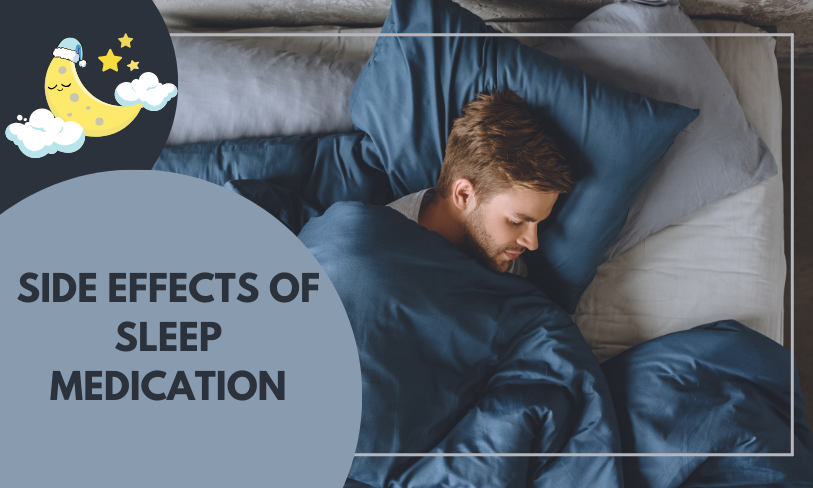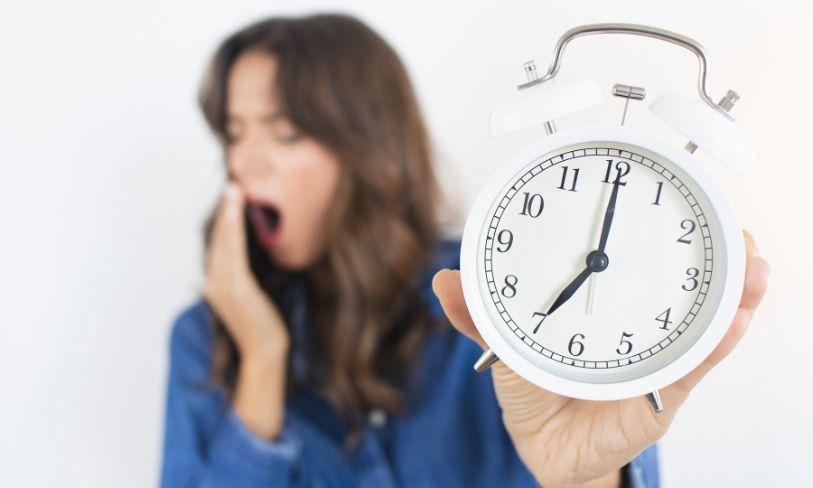
side effects of sleep medication:- Sleep medications, also known as hypnotics, are widely prescribed for the treatment of insomnia and other sleep disorders. While they can be effective in helping individuals achieve restful sleep, they also come with a range of potential side effects. Understanding these side effects is crucial for anyone considering or currently using sleep medications. This comprehensive guide explores the various side effects associated with common sleep medications, including non-benzodiazepine hypnotics like Zopiclone.
Contents
Understanding Sleep Medications
Sleep medications are typically categorized into two main types: benzodiazepines and non-benzodiazepines. Benzodiazepines, such as diazepam and lorazepam, have been used for many years to treat anxiety and sleep disorders. Non-benzodiazepines, such as Zopiclone, were developed more recently and are often prescribed because they tend to have fewer side effects and a lower risk of dependency.
Zopiclone: A Popular Non-Benzodiazepine Hypnotic
Zopiclone is a non-benzodiazepine hypnotic commonly prescribed for short-term treatment of severe insomnia. It works by modulating the benzodiazepine receptors in the brain, which helps to induce sleep. Although Zopiclone is effective, it is important to be aware of its potential side effects.
Common Side Effects of Sleep Medications
1. Daytime Drowsiness and Fatigue
One of the most common side effects of sleep medications is daytime drowsiness. Users often feel excessively sleepy and fatigued the next day, which can impair their ability to function normally. This effect can be particularly problematic for those who need to operate machinery or drive.

2. Cognitive Impairment
Sleep medications can affect cognitive functions, leading to memory problems, confusion, and difficulty concentrating. This cognitive impairment can impact daily activities and overall quality of life.
3. Dependence and Withdrawal
Prolonged use of sleep medications, especially benzodiazepines, can lead to physical and psychological dependence. Users may find it difficult to sleep without the medication, leading to increased use and potential abuse. Withdrawal symptoms can include anxiety, agitation, and rebound insomnia.
4. Gastrointestinal Issues
Some sleep medications, including Zopiclone, can cause gastrointestinal side effects such as nausea, vomiting, and diarrhea. These symptoms can be uncomfortable and may deter individuals from continuing the medication.
5. Allergic Reactions
Although rare, allergic reactions to sleep medications can occur. Symptoms may include rash, itching, swelling, severe dizziness, and trouble breathing. If an allergic reaction is detected, prompt medical assistance is necessary.
6. Complex Sleep-Related Behaviors
Sleep medications can sometimes lead to complex sleep-related behaviors such as sleepwalking, sleep driving, and engaging in other activities while not fully awake. These behaviors can be dangerous and often the individual has no memory of them.
7. Changes in Mood and Behavior
Mood changes, including increased anxiety, depression, and irritability, have been reported in some users of sleep medications. These changes can affect personal relationships and overall mental health.
Long-Term Risks of Sleep Medication Use
1. Increased Risk of Dementia
Long-term use of sleep medications has been linked to an increased risk of developing dementia. Studies suggest that prolonged use of these drugs may negatively impact brain health over time.
2. Respiratory Issues
Certain sleep medications can depress the respiratory system, making it difficult to breathe, especially in individuals with pre-existing respiratory conditions such as sleep apnea or chronic obstructive pulmonary disease (COPD).
3. Tolerance Development
Over time, the body can develop a tolerance to sleep medications, meaning higher doses are needed to achieve the same effect. This can increase the risk of overdose and exacerbate side effects.
4. Impact on Sleep Architecture
Sleep medications can alter the natural architecture of sleep, affecting the balance of REM (rapid eye movement) and non-REM sleep stages. This alteration can result in less restorative sleep and feelings of grogginess upon waking.
Managing Side Effects and Safe Usage
1. Follow Prescribed Dosage
Always follow the prescribed dosage and instructions provided by your healthcare provider. Avoid increasing the dose without consulting a doctor.
2. Short-Term Use
Use sleep medications for the shortest duration possible to minimize the risk of dependence and side effects. A healthcare provider should closely monitor long-term use.
3. Avoid Alcohol and Other CNS Depressants
Combining sleep medications with alcohol or other central nervous system depressants can enhance side effects and increase the risk of severe reactions.
4. Report Any Unusual Symptoms
Immediately report any unusual or severe side effects to your healthcare provider. This includes any signs of allergic reactions, mood changes, or complex sleep-related behaviors.
5. Consider Non-Pharmacological Treatments
Explore non-pharmacological treatments for insomnia, such as cognitive-behavioral therapy for insomnia (CBT-I), relaxation techniques, and good sleep hygiene practices. These methods can be effective and carry fewer risks than medication.
Conclusion
While sleep medications like Zopiclone can be beneficial for individuals struggling with insomnia, it is important to be aware of the potential side effects and risks associated with their use. By understanding these side effects and following safe usage guidelines, individuals can make informed decisions about their treatment options and work towards achieving better sleep health.
Sleep is essential for overall well-being, and finding the right balance in managing sleep disorders is crucial. Always consult with a healthcare provider to determine the most appropriate treatment for your specific needs.
Author Details




Medical content by qualified psychiatrists
Our editorial policy

Zopiclone precautions Read our potential abuse notice

Looking for a seller? Locate the best Zopiclone vendor






